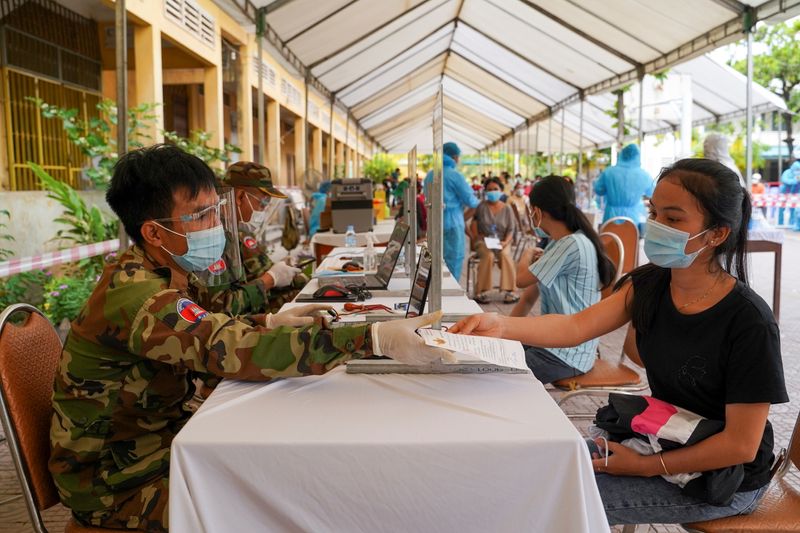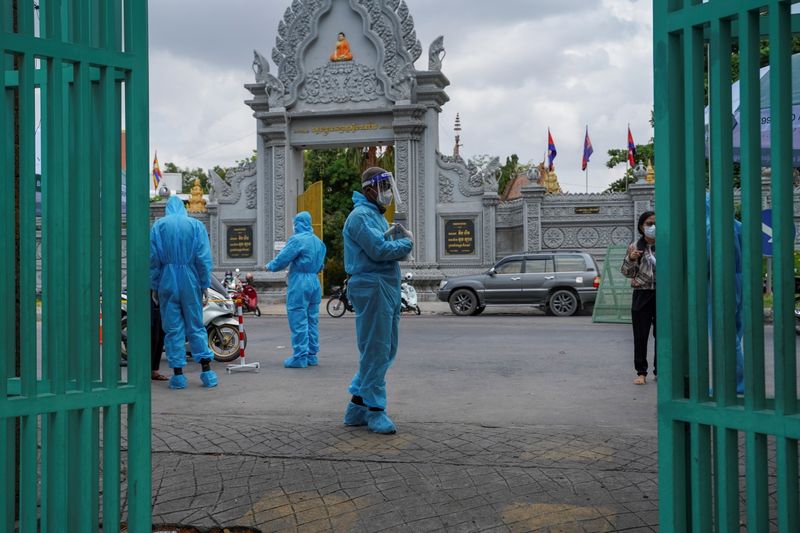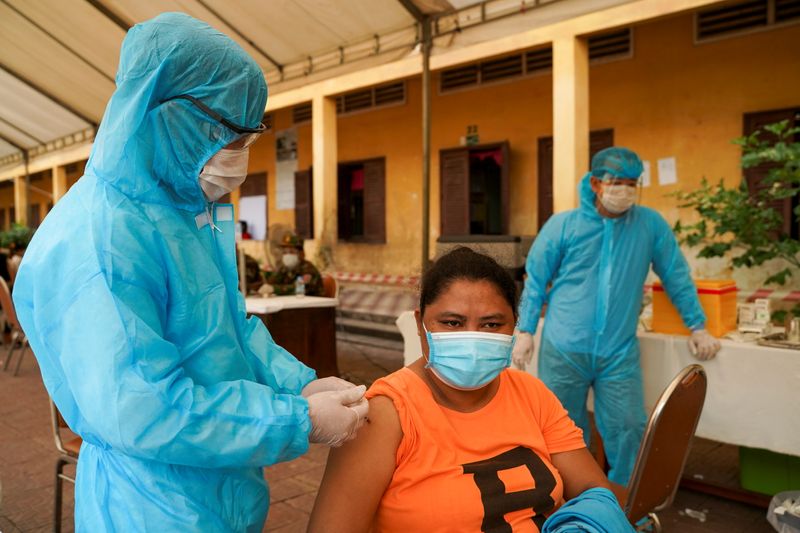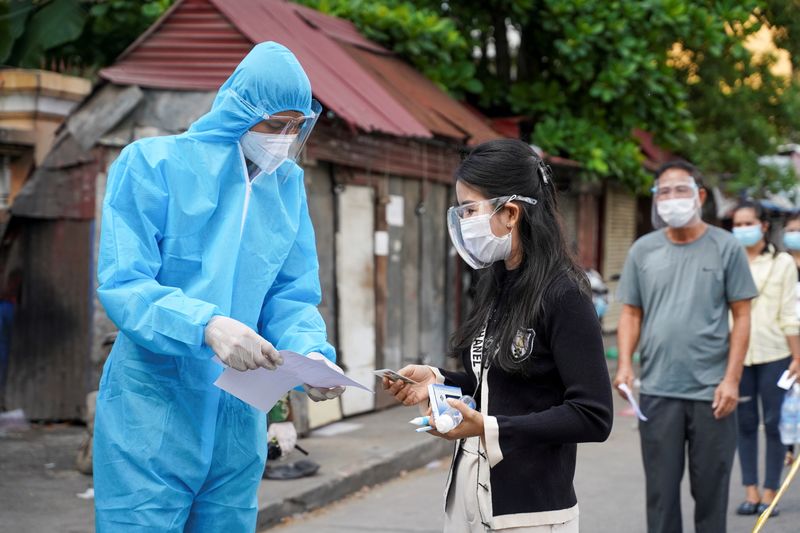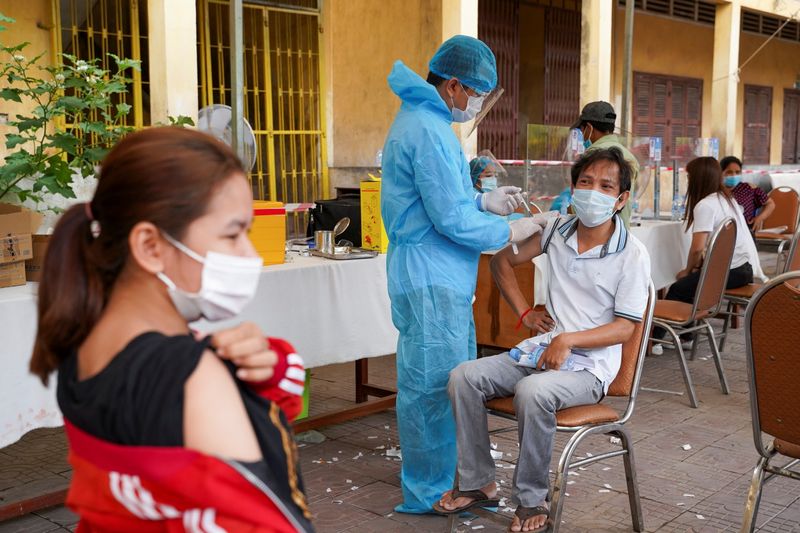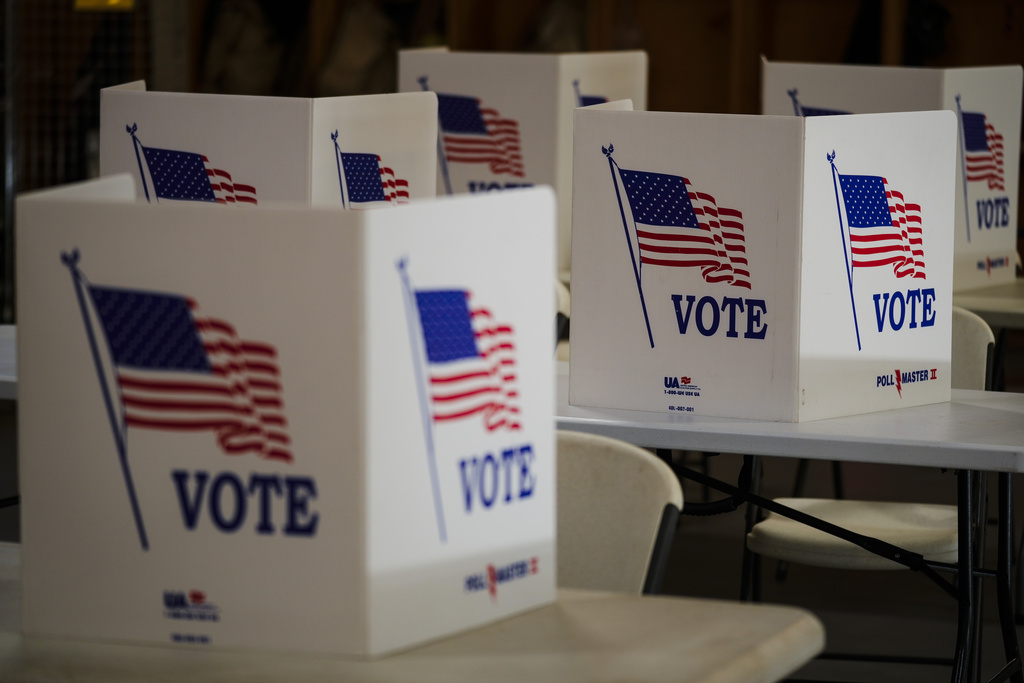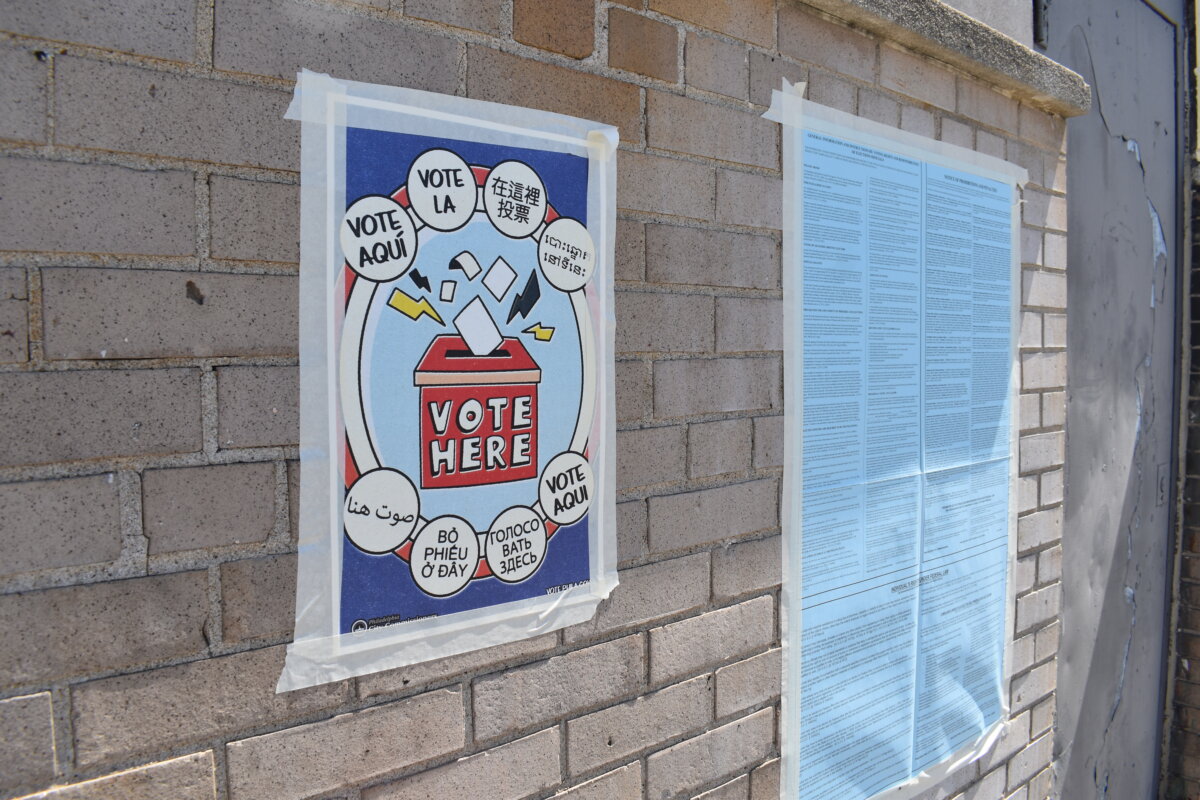PHNOM PENH (Reuters) – Cambodia’s army began a drive on Saturday to vaccinate nearly half a million people in the parts of Phnom Penh worst-hit by COVID-19, as the Southeast Asian nation looks to step up the pace of inoculations.
The country, which had been one of the least affected by the pandemic, is fighting a surge in coronavirus cases that has seen the total number of infections jump from about 500 to 13,790 since late February, including all 96 of the deaths it has recorded.
Phnom Penh is under lockdown until May 5 and has declared some districts of the capital “red zones”, banning people from leaving their homes except for medical reasons.
Senior military official Eth Sarath said 471,573 people would be inoculated with China’s Sinopharm and Sinovac shots during a one-month campaign led by the military, according to a Ministry of Defence statement posted on Facebook.
“To date, more than 1.3 million Cambodians, including foreigners, diplomats and civil society workers in Cambodia, have been vaccinated,” the defence ministry said.
It said the country, which has a population of around 16 million, had received more than 4 million doses of vaccine, including 1.7 million doses of Sinopharm donated by China.
People queued to get vaccinated on Saturday at a primary school in Phnom Penh as camouflage army personnel coordinated the crowd by radio.
Businessman Sir Sokha, 51, said he had been trying for some time to get a vaccination, but had previously been told it was not his turn.
“So I waited until they broadcast on television recently that we can have our vaccinations today, so I rushed to vaccinate right away,” he said as he waited in line.
But Soeung Senkaruna, senior human rights worker at local rights group ADHOC, criticised the use of the military, saying people might feel intimidated.
“Whether they want it or not, seeing soldiers like these, they are worried, they are scared in case they do not want to make a decision, do not want to get the jab,” he said.
(Reporting by Prak Chan Thul and Lach Chantha; Editing by Alex Richardson)

